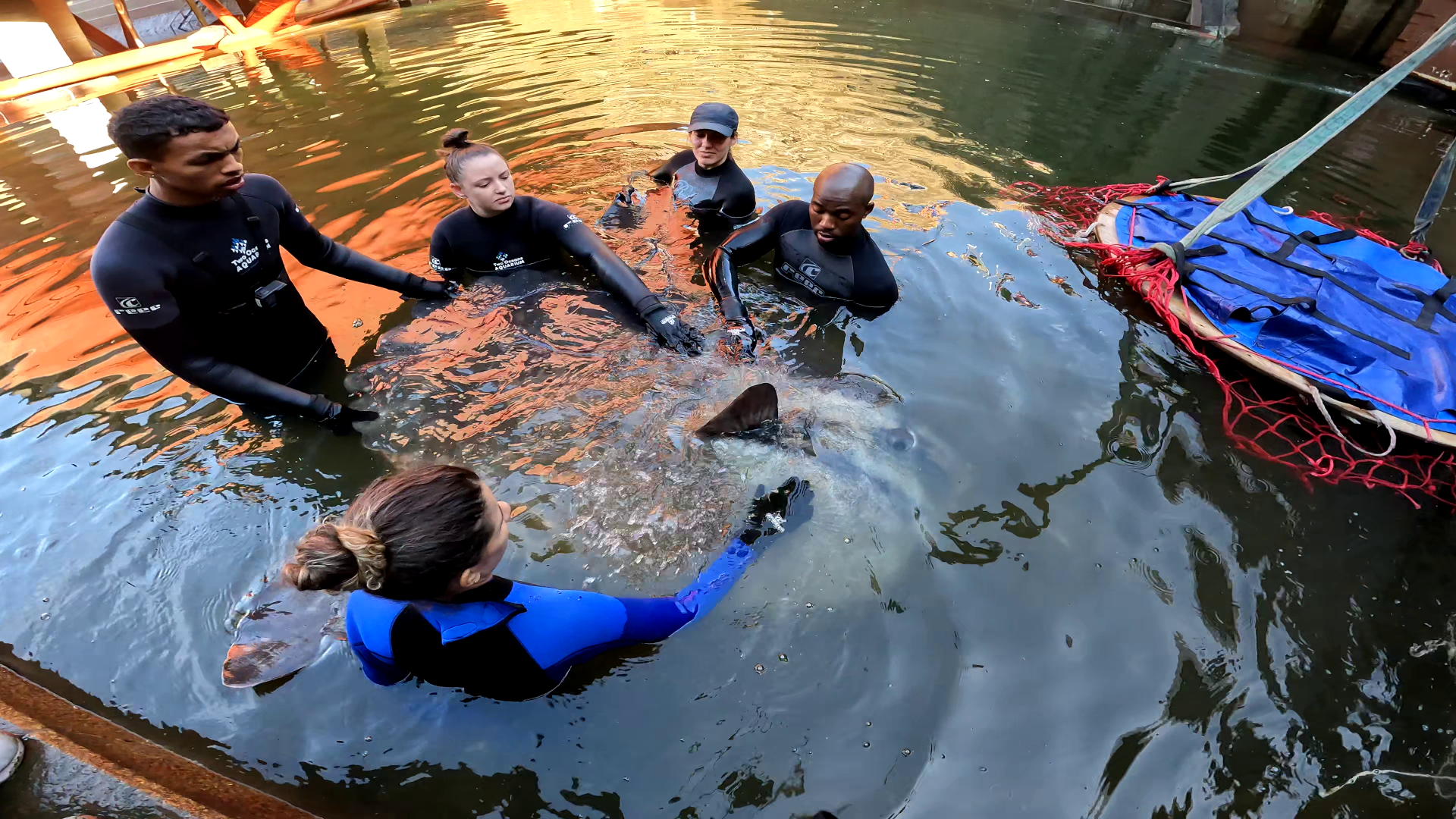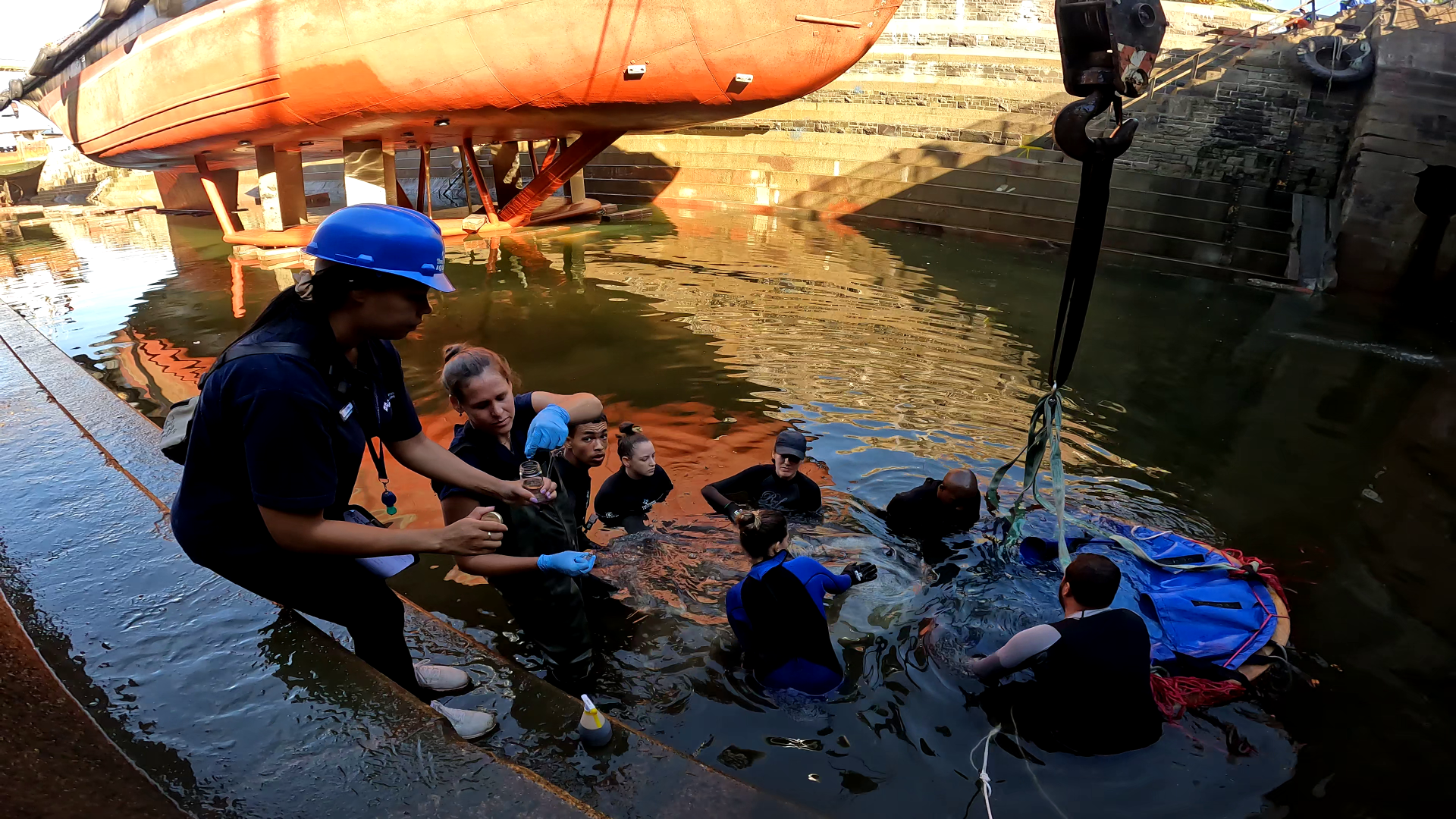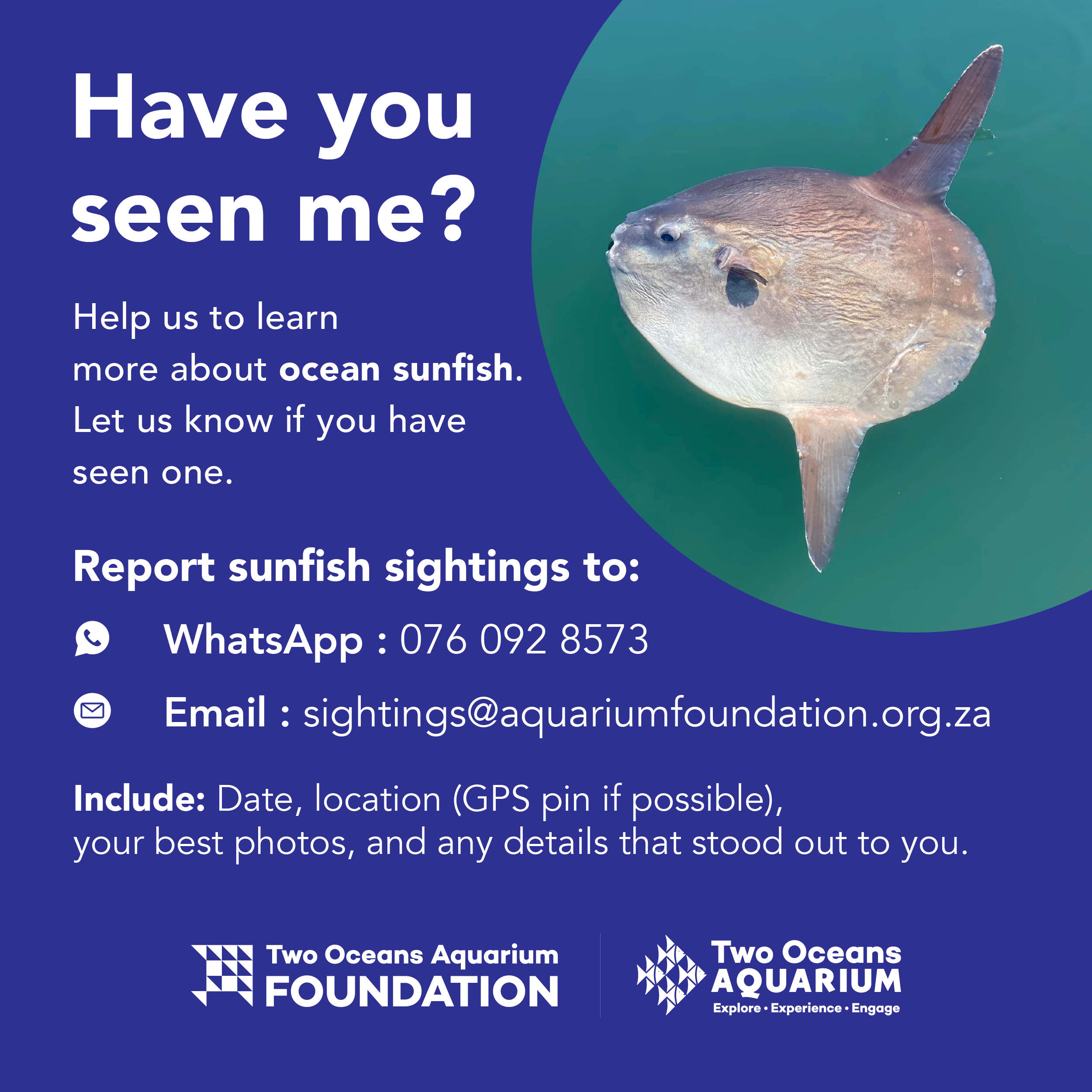Enormous ocean sunfish rescued in Cape Town harbour
On the morning of 30 January 2024, visitors to the V&A Waterfront were in for an unusual sight – an enormous ocean sunfish “flying” overhead!
The previous evening, Johan Coetzee, manager of the Transnet Robinson Drydock, contacted the Two Oceans Aquarium to notify the team that a large ocean sunfish (Mola mola) had become trapped in the drydock when water levels were being lowered. Transnet was quick to turn off their pumps and put two staff members on watch to monitor the sunfish until the Aquarium could mount a rescue the following morning.
Brett Glasby of the Two Oceans Aquarium Foundation’s Marine Wildlife Management Programme coordinated a response – it would take many hands to move such a large animal to safety!
The water of the drydock was lowered to waist height, and the team slowly made their way out to the sunfish, careful not to stress it unnecessarily and to prevent it from injuring itself in the shallow water. The sunfish was gently guided towards to front of the drydock, where a crane would be able to access it.

“Simon Brill and I had the opportunity to feel around for the sunfish under the water, and only really got the chance to fully appreciate its impressive size once we’d lifted it to the surface,” said Martine Viljoen of the Marine Wildlife Management Programme. “While we were guiding it to the stretcher, I could feel the strong flow of water being expelled from its gills and kept a close watch on its fascinating eyes while we protected it. These rescues are an incredible opportunity to get close to such unique animals, a definite reminder of just how rough the skin of a sunfish can be, but also just how gentle they are.”
This ocean sunfish was one of the larger specimens that the Aquarium team had been involved in rescuing (Cape Town locals might remember similar “flying sunfish” rescues from years past). At over 600kg, 1.66m long, and 2.11m from fin tip to fin tip, this sunfish was just over half of its theoretical maximum adult size!
Opportunities to work with these sunfish hands-on also present a chance for the research division of the Two Oceans Aquarium Foundation to collect genetic and parasite samples from the sunfish. These samples contribute to global collaboration, monitoring the diversity and distribution of these mysterious ocean wanderers.

The team were able to slide a solid stretcher under the sunfish, and once firmly attached, it was able to be hoisted out of the drydock thanks to the team from Teemane Cranes, and onto a waiting Two Oceans Aquarium boat.
Once lowered into the boat, the Two Oceans Aquarium team took the sunfish out beyond the Port of Cape Town harbour mouth, so it could once again continue its ocean journey. Claire Taylor, who skippered the boat and was part of the rescue team from the Two Oceans Aquarium, said. “It’s always a pleasure to be able to release these sunfish outside of the harbour, into the open water where we know they are supposed to live. I love working with such an awesome team, we couldn’t bring something like this together if we weren’t surrounded by people passionate about ocean animals.”
We would like to thank everyone involved in this rescue – we cannot move a 600kg sunfish to safety without an incredible, coordinated effort. So, a big thank you to the team from Transnet, Teeman Cranes, the Two Oceans Aquarium Dive School, and the very cooperative (albeit fully captivated) members of the public that supported the Two Oceans Aquarium Foundation in this effort – you made this work possible!
Support sunfish research:
The Two Oceans Aquarium Foundation encourages regular ocean users to record their sightings of all sunfish species to aid in global studies. If you spot a sunfish, simply report your sighting on WhatsApp to 076 092 8573 or email sightings@aquariumfoundation.org.za. Include as much information as possible, but ideally, any photos/videos you take, a GPS location or map pin, the date and time of your sighting, and any behaviours you observed.

Related News
Sign up to our Newsletter
Receive monthly news, online courses and conservation programmes.


